Ambassador of Venezuela on the development of relations with the countries of Central Asia and big plans in the region.
Rosalba Lo Bue Antico, city — Astana, Ambassador of Venezuela in Kazakhstan, Kyrgyzstan, and Uzbekistan, @rosalbalobueantico,@embvekazajistan
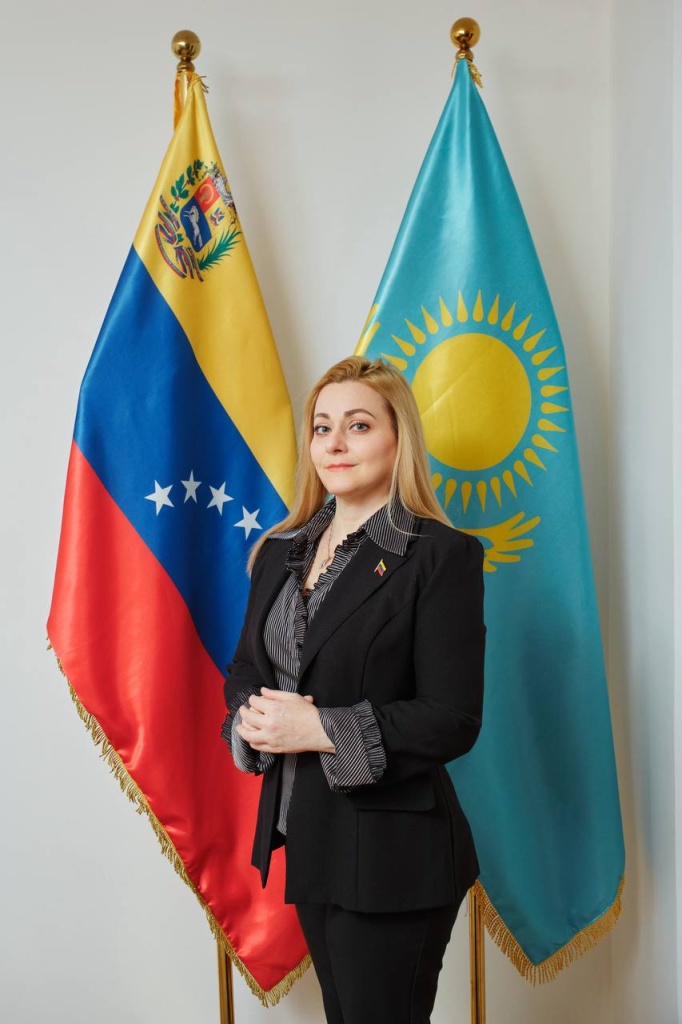
About myself
I am the Ambassador of Venezuela in Kazakhstan, Uzbekistan, and Kyrgyzstan. By education, I am a journalist, and this profession has become for me an instrument of understanding the world.
My professional path of 25 years covers the most diverse spheres: from work in state structures and regional administration to diplomacy and international analytics. I represented Venezuela in the embassies in Belarus and Russia, where I worked on the development of cultural cooperation and humanitarian ties. I also headed the Latin American Cultural Center named after Simon Bolivar in Moscow. I worked in analytics in the field of international relations, paying special attention to Eurasia, Central Asia, and the Middle East.
I hosted my own television program, where I conducted interviews with diplomats, politicians, and experts from all over the world. This program helped my compatriots better understand political and economic processes, as well as open new perspectives on cooperation for Venezuela.
Journalism is an important instrument of diplomacy. With its help, one can form a positive image of the country, find points of contact, and build bridges of cooperation in the fields of economy, culture, and science. This is exactly how I perceive my mission as an analyst and diplomat.
About activities
Working in Kazakhstan and the countries of Central Asia, I am convinced that despite the geographical distance, Venezuela and your region are united by the aspiration for development and new partnership opportunities. My task is the creation of strong bridges and the revelation of the full potential of cooperation between Venezuela and Central Asia.
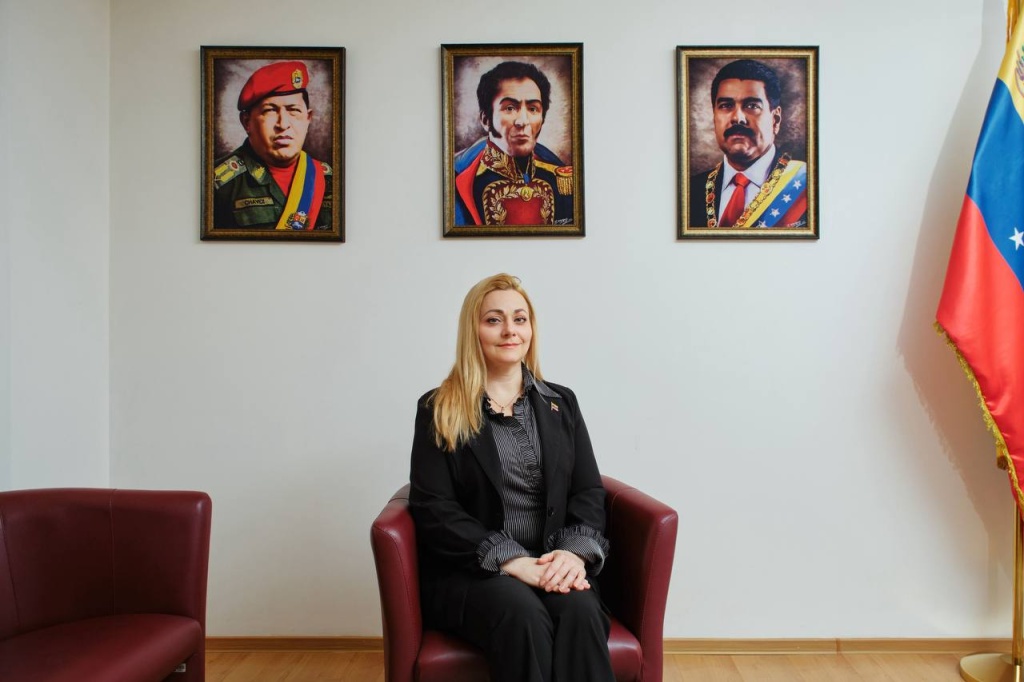
Although I am a journalist by education, today my view is directed at practical tasks: concrete projects in the field of economy, trade, science, and culture. Venezuela and Central Asia are able to build a strong partnership, based on mutual benefit and respect.
When we speak about cooperation of Venezuela with the countries of Central Asia, I highlight three key directions: diplomatic, economic-trade, and cultural-humanitarian.
About activities in Central Asia
Our embassy in Kazakhstan opened seven years ago. And if at the very beginning Venezuela and Kazakhstan had only two signed agreements, today we have about fifteen projects at the stage of discussion or preparation for signing. With Kyrgyzstan during this time, we succeeded in concluding the first cooperation agreement, and with Uzbekistan, the documents are already ready for signing. This shows that the dynamics of cooperation are increasing, and we are confidently moving forward.
In the economic sphere, the priority direction remains energy. Venezuela possesses the largest oil reserves in the world and takes fourth place in volumes of gas. Kazakhstan is the leading energy producer of Central Asia. This is a natural basis for a mutually beneficial partnership. We also consider possibilities of cooperation in other resource sectors: extraction of uranium, gold, silver, and rare earth metals. Kazakhstan acts as one of the main suppliers of uranium to Europe, and Venezuela possesses great potential for expanding its own mining industry.
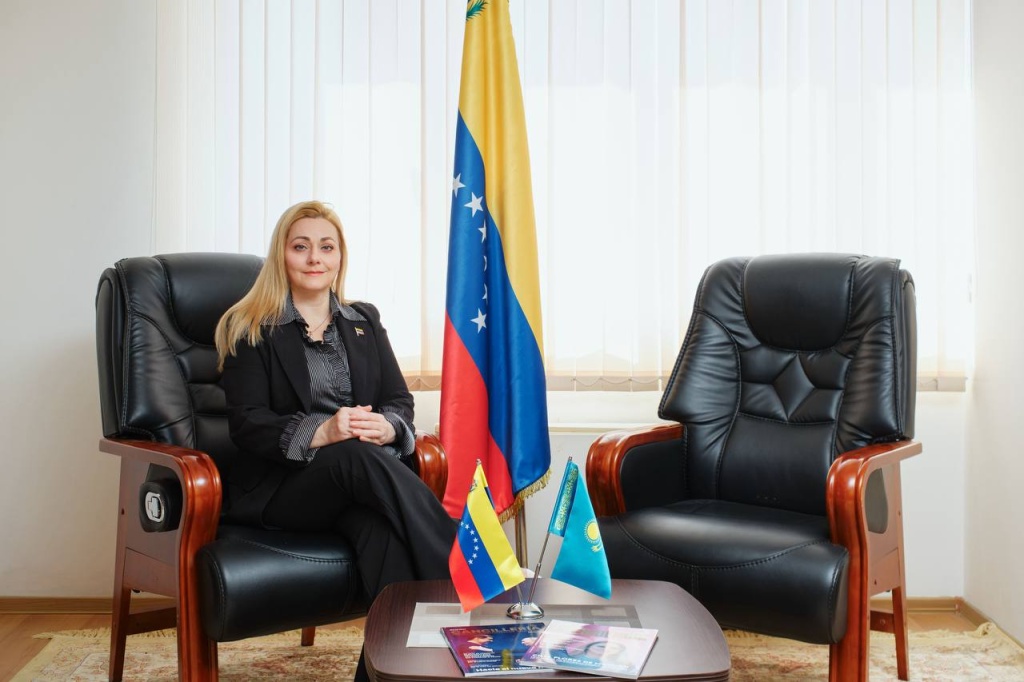
Venezuela has enormous potential in the sphere of food production, and we strive to contribute to the solution of the global task — the fight against hunger and the ensuring of food security. We see opportunities not only to supply agricultural goods, but also to expand mutual exchange, developing full trade relations with Central Asia.
Our export positions include coffee, cocoa, seafood, and fish. Venezuela possesses significant water resources, which allows for the possibility of exporting minerals and drinking water to the region.
Venezuela is one of the largest consumers of wheat flour in the world, and we consider Kazakhstan to be the most important partner in wheat import.
We also see great perspectives in the field of the cotton industry. Together with Uzbekistan, we study the whole chain of cotton production — from selection and growing to production of fabrics and their further commercialization. This direction can also significantly enrich our own textile industry in Venezuela.
With Kyrgyzstan, we develop projects in the agro-industrial sphere: fruits, vegetables, meat, and dairy products. We are sure that this exchange will allow both sides to strengthen food security and develop new trade ties.
No less important is the transport-logistic potential of Kazakhstan. The country is considered a key hub of international trade thanks to the project of the Middle Corridor. For Venezuela and the entire Latin American region, this opens up the opportunity to access the markets of Central Asia and Eurasia through Kazakhstan.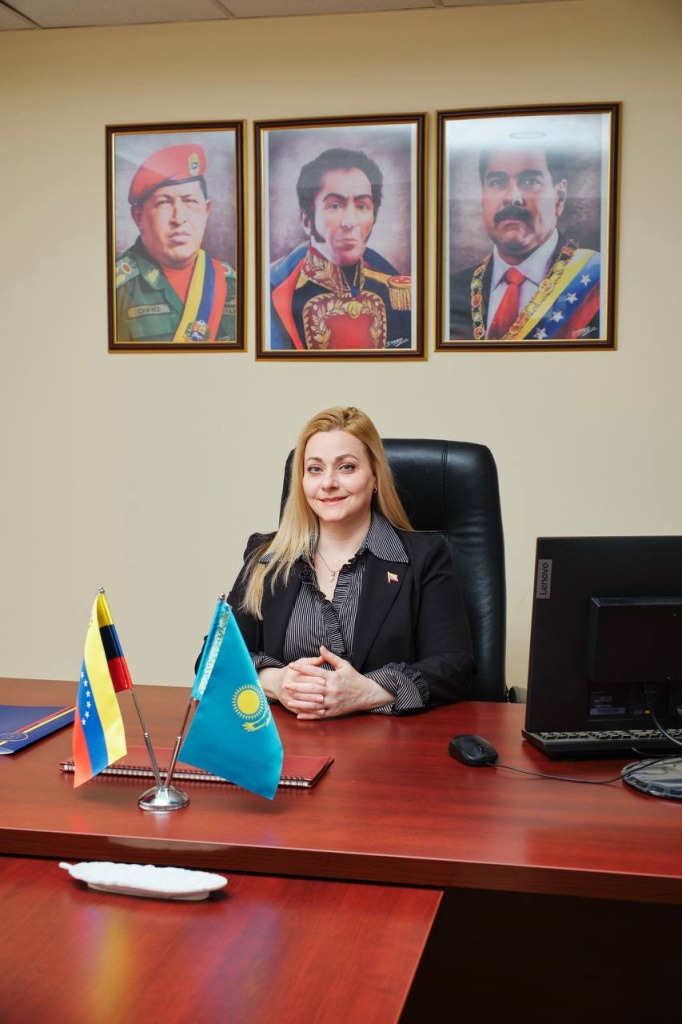
Also, Venezuela initiated the process of obtaining the status of observer in the Eurasian Economic Union. For us, this is an important step that will allow us to become even closer to the countries of the region and more actively participate in integration processes. We also strive to join as a mediator for dialogue in the Shanghai Cooperation Organization and as an observer in the Organization of Islamic Cooperation among regional organizations.
I would also like to emphasize the sphere of tourism. Kazakhstan, Kyrgyzstan, and Uzbekistan are countries with unique natural riches and cultural heritage, which can attract not only Venezuelan tourists but also open new routes for international tourism. Many residents of Kazakhstan fly to Venezuela through Istanbul or Moscow. But we are sure that in the near future we will be able to offer more convenient and shorter routes. For example, a possible direct airline Tashkent-Caracas, operated by the airline of Uzbekistan. This would become a vivid symbol of strengthening ties between our regions.
One of the steps that we undertake for deepening ties with Kazakhstan, Kyrgyzstan, and Uzbekistan is the simplification of the visa regime.
We also actively work on the development of cooperation in the sphere of education. Between the ministries of education of Venezuela and Kazakhstan, several meetings have already taken place. We agreed on the signing of memorandums on mutual recognition of diplomas, academic mobility, joint research programs, and scholarships. Through the exchange of students, professors, and researchers, it is possible to achieve true scientific and technological interaction, which will give an impulse to innovations and the development of both countries.
About Central Asia
Earlier, I had experience working in Belarus, China, Russia, and Turkey. I came to Kazakhstan for the first time a year ago. The people of Kazakhstan are unique. They have their own character, their own soul, their unique spirit — rapid, strong, free. And the more I learn about the Kazakh people, the stronger I feel as if I am in Venezuela. Our people are amazingly similar in their attitude to life, in openness and warmth.
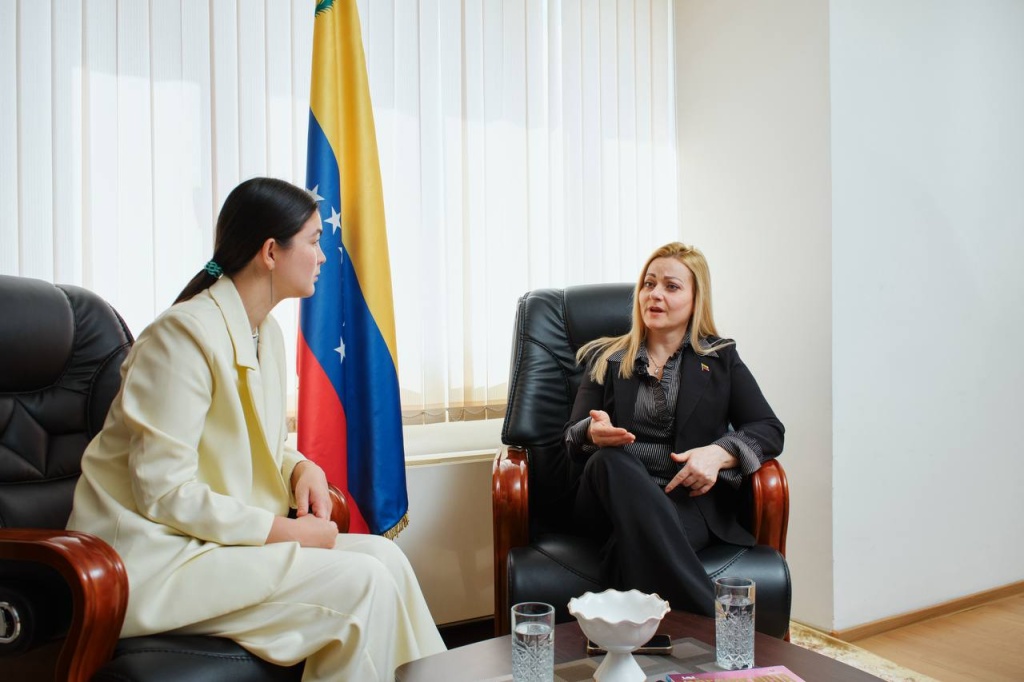
Astana is modern and impressive. Especially, I was struck by the project of the “green corridor,” created around the city. This is a grandiose ecological challenge, which must form a new microclimate for the capital. For me, this is a symbol that Astana looks to the future — confidently, boldly, and strategically.
I also managed to visit Almaty. This city opened to me as an important cultural and economic center of the country, with its own atmosphere, different from Astana, but just as significant for understanding Kazakhstan.
One of my key tasks is to bring our people closer. It is important for me that Venezuelans better know Kazakhstan — its culture, regions, history, and politics. And that the Kazakhstani people know the uniqueness, spirit, and opportunities of Venezuela. For if we know each other, we will begin to understand better, and that means we will be able to do more together.
We are people with strong character, and we are countries that strive for justice and independent development. And therefore our cooperation is not just possible — it is natural and necessary.